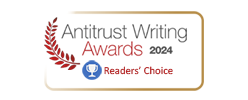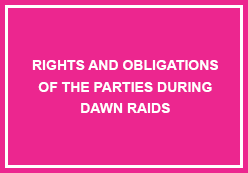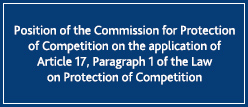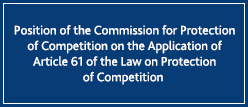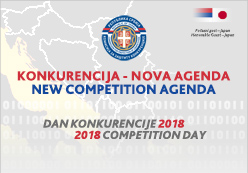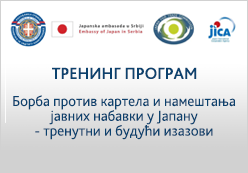 On April 12, 2017, Council of the Commission for Protection of Competition enacted a decision on the implementation of retail market sector inquiry.
On April 12, 2017, Council of the Commission for Protection of Competition enacted a decision on the implementation of retail market sector inquiry.
According to the European Commission’s reports, the role of retail sector is of key importance for the European economic development, and in this regard individual EU countries (Germany, Great Britain, Finland…) continuously monitor competition related fluctuations in the context of observed sector developments.
The sector inquiry will contribute to the establishment of relations between retail market competing parties at the local, regional and national level. Also, this sector inquiry will encompass the wholesale market. This implies the estimate of market share and relative power of undertakings, analysis of contractual relations between suppliers and trade chains, in addition to analyzing effects of those relations on the market competition.
>br>
The issue of particular importance will be the relation between retailers and their suppliers in terms of establishing differences in the degree of negotiating power between small and large trade chains, as well as between those operating at the national, regional and local level. The second important aspect is the issue of suppliers positioning that can also be perceived via the likelihood and manner of exerting the influence on shelving display size in retail stores, or imposing potential obligation to pay compensations (slotting fee, risk of de-slotting when suppliers refuse to reduce prices or change other important terms and conditions of payment, and ‘pay-to-stay’ fees). The issue of rebates policy will be analyzed in detail, and particularly in regard to setting the types of approved rebates, amounts and criteria for their approval.
Keeping in mind that the development of private-label products is a trend that can be identified on the retail market, influence of product brands on consumer selection will be also analyzed, along with the profitability and negotiating power of trade chains and suppliers positioning.
And last but not less important, results of this sector inquiry will enable implementation of ex-post analysis of substantial concentrations previously executed in this sector.
13.04.2017
